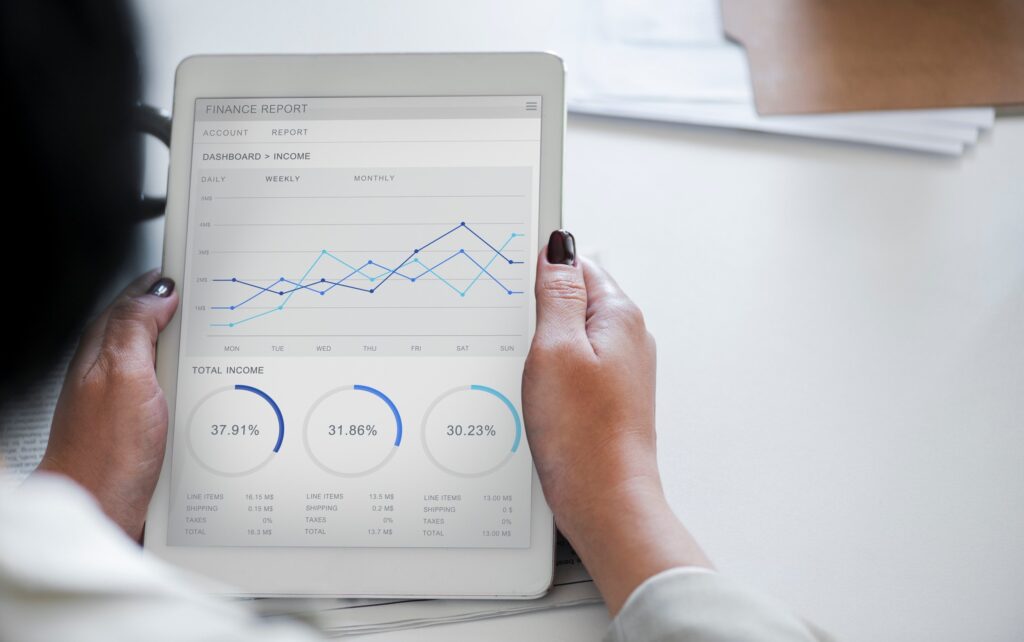Jun. 13, 2018

What Is Digital Marketing?
What is digital marketing? Have you asked yourself or been asked recently? Essentially, it’s all the ways a business markets itself online. There are various digital marketing channels you can use to communicate your brand message. The key is to have a consistent message that is aligned with your brand.
Why Develop a Digital Marketing Strategy?
There are various digital marketing channels you can use to target your consumers with your brand message. Some channels need a softer approach and pushing sales may turn people away while others are very clearly “ready to buy” channels, if you will. But to start you need to determine some key things.
- Who is your audience?
Do you know who you are targeting? Who do you want to attract and who has your business been attracting? Outlining clear buyer personas for your business is critical as it will help you with you understand and define your brand message, values, visuals and voice. - What is your message?
When you’ve formalized this you can massage the message to fit the channel you are using to marketing your brand. - Where can you deliver your message?
What route will you take to send out your brand message to the right consumer at the right time? For example, by virtue of the character limits in a PPC text ads what you say will be different than a post caption on Instagram. Word count restrictions aside, someone explicitly searching for something that brings up your text ad has different intentions that someone scrolling through their instagram feed. What does this all mean? Let’s break down Digital Marketing…
What is Digital Marketing?
Digital Marketing is an umbrella term for many of the online tactics we use to attract the right audience. So let’s explore some of the channels we use to generate awareness, leads and sales. The answer can be overwhelming but there is a clear way to break it down. Digital Marketing comprises of:
- Search Marketing
- Paid Social Advertising & Display
- Social Media Marketing
- Email Marketing
Great, but what do each of these terms entail?
1. Search Marketing
Search engines like Google are very powerful for us as end consumers and as business owners. Getting onto page one in the organic positions, the paid positions and the local pack (if your business is location driven) is what we, as digital marketers, refer to as search marketing and it’s an important component of your digital marketing strategy.
- Search Engine Optimization (SEO)
Part of search marketing is the practice of optimizing your site to rank on page one and position one of the SERP (Search Engine Result Page). You can do this by optimizing your site content, structure and technical infrastructure. Additionally, increasing the amount of good quality sites linking to yours through content that may appeal to SERPs. As of late, Google is starting to place greater emphasis on user experience and looking at factors like direct traffic, bounce rate, time on site and anything that indicates you provided value to the users landing on your site. - Pay-Per-Click Advertising (PPC)
The other side of search marketing is pay-to-play. PPC refers to the paid listings that appear above the organic results in the SERP. The keyword strategy and execution of a PPC campaign varies from your organic optimization efforts. For one, you’ll want a dedicated landing page to send traffic outside of your site. With this you have maximum control of the content and you can target a very clear action without the possibility of switching gears and exploring your site without any conversion.
2. Paid Social Advertising & Display
PPC above is focused on keywords and ad copy, so naturally, the consumer has a greater intent to make a purchase.
Paid Social Advertising and Display campaigns serve banner ads to an audience that is created based on interests, demographics, locations, or previous visitors to your site. This digital marketing channel is ideal to raise awareness for your brand.
3. Social Media Marketing
Social media is a powerful platform to establish your brand voice and continue with the awareness play. These platforms do not replace the need for a website. They help you engage with your audience and build an affinity for your brand if the correct communication strategy is employed.
4. Email Marketing
Email campaigns are a great way to share content and information, special discounts or sales and upcoming events with your customers. Drip campaigns are common email marketing strategy used to connect with users at specific junctures in their purchase cycle. Sending promotions rights to a customers inbox is also a great tactic depending on the nature of our business.
The Benefits of Digital Marketing
The greatest benefit of digital marketing is the ability to track and see results in real time. This allows you to course correct if needed and report on true results. Also, as marketers we are aware that one channel isn’t likely the only reason why users take action.
- Users may click on a link from a site and land on another page.
- They may then get display ads for the latter served to then as they continue exploring the web.
- Then users may decide they’re in need of something and look it up on Google.
- Maybe they’ll see a listing at the top in the paid position and hey, they recognize the URL. Once they click, that’s when they convert.
Can you say the PPC ad was the only one responsible for the desired action being taken? Not entirely. What I’ve just described is attribution modelling which is another benefit to digital marketing. We’re only scratching the surface when it comes to the power of digital marketing for your business.
Give us a shout to continue the conversation.
Book with us
Let’s accomplish what you are looking for, our team of experts are here for you.
Let's work togetherWarning: Working with our team may result in excessive creativity, uncontrollable 'aha' moments, and an addiction to perfect pixels. Please proceed with caution.



